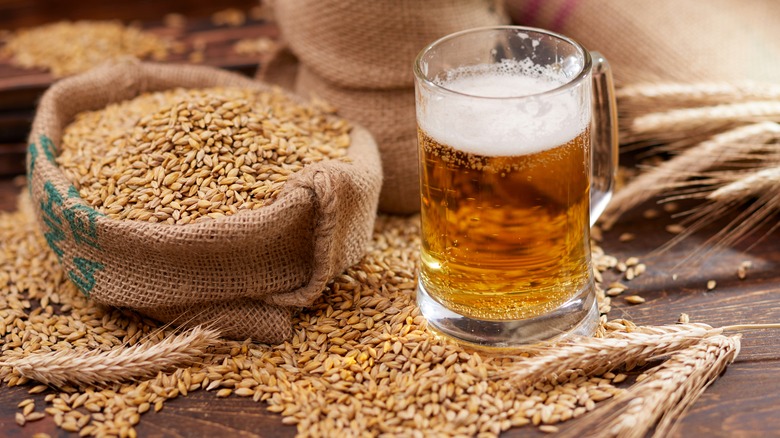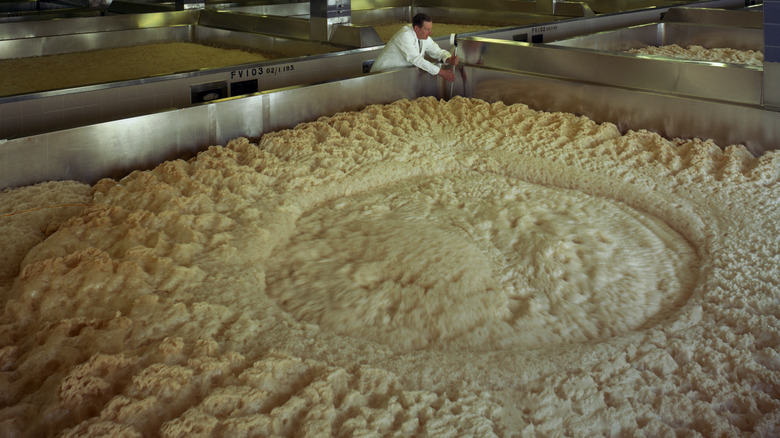How A Baking Accident May Have Led To The Invention Of Beer
For every incredible culinary or beverage masterpiece, there is a genius who made the discovery. As for beer, the creation may have dropped from the sky, literally. The intoxicating beverage dates back thousands of years, but the precise date of conception is muddy. Given the absence of recipes from antiquity, no one can confidently retell beer's origin story, although beer experts have a pretty good idea.
The brewing process may be strategic and meticulous in today's beer scene, but it wasn't always so deliberate. Award-winning brewer and beer consultant, Horst Dornbusch, is fairly certain that the invention of beer was a happy accident. As the author of several books on brewing, Dornbusch knows his stuff. According to Smithsonian Magazine, Dornbusch theorizes that someone left their bread dough outside mid-baking when rain clouds were on the horizon. When they came back to the dough post-rainfall, they were met with a sloppy, wet, mess. A mess, yes, but a fermented mess. The environment's natural yeast would have worked wonders to transform the grain's sugars into alcohol and, voila, beer is born.
The world owes beer's discovery to natural forces
For a beverage that arguably tastes better when basking in the sun, it's fitting that beer was conceived in the great outdoors. Beer is dynamic, heady, and delicious, and it's all thanks to grains. Simply put, beer is fermented grain, typically barley or corn. Moisture helps the grain to sprout, which then develops sugar. Yeast is the magical ingredient that ignites the fermentation process to produce the fizzy beverage. While not a guarantee, it's possible for germination and fermentation to naturally occur on their own, with just a little help from nature. There is a great deal of wild yeast that naturally floats through the air, just waiting to interact with budding grains, lending credence to the idea that beer was discovered by chance.
Considering fermentation can naturally occur, odds are a number of bakers all over the world stumbled upon surprise beer at different times in history, before the process was recorded. While this happenstance likely introduced beer, it's taken centuries to master the beverage we enjoy today, not to mention seemingly endless innovative variations. Modern brewers have incorporated hops, flavors, and new processes so no one needs to rely on Mother Nature to get their buzz on. There are even gadgets on the market to simplify the process of making beer at home.

